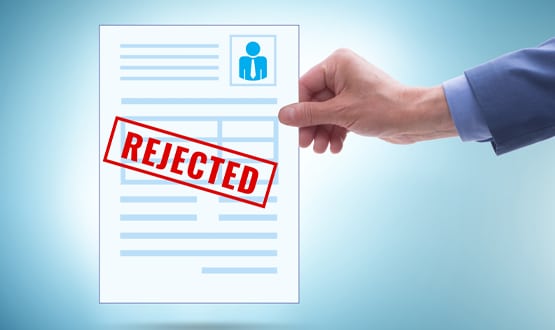Joe’s View: On the value of patient-centric records
- 23 August 2018

When you’re out at sea and your yacht’s engine fails, it isn’t too much of a problem. You’ve got sails, a radio and cold beer in the fridge.
Our problem was that we were only 200 metres off the land and drifting towards it. In all recorded fights between land and ships, ships have yet to score. I got on the radio to summon help. We waited nervously.
Then Michael turned up. The day before, Michael and I had both picked up yachts in Corfu to do a ”delivery trip”; a way to get a cheap sailing holiday in the Greek islands at the start and end of the summer season.
In the winter, the yacht rental companies keep their boats in cheap but less-than-beautiful boatyards up in the north. Come springtime the boats need to be moved about 400 miles south, where they will be rented to holiday makers over the summer.
The reduced cost for making this trip is because there are a lot of early starts and long days, and because the boats frequently have problems as they have been out of action for months. The yachts move in flotillas of about 12 or so to provide mutual support.
I hadn’t declared that I was a doctor at the pre-trip briefing, as is my wont, for fear of being overwhelmed with work. And Michael failed to let it slip that he was a marine engineer. But he declared it as he came alongside, to our great relief. We were soon mended and on our way. Crisis over.
When it’s your turn
We invited Michael and his wife to a local taverna where we had an excellent evening. We were very grateful. “Ach, it’s nothing,” said Michael. “You have to help each other, don’t you? You never know when it’s going to be your turn.”
When we got up next morning, Michael’s boat had disappeared. He’d had a medical emergency and had to sail to Corinth to see a specialist. We quickly followed him there, where he recalled a nightmare journey spent suffering from acute urinary retention – an extremely painful condition brought on by prostate problems.
There were two trips to different hospitals, none of his history was available, and the note he showed me on his return was handwritten and literally all Greek to me. He had a bag of injectables (labelled in Greek) and syringes and had been told he’d need an intramuscular injection twice a day. So for the next 10 days every morning and evening ended with either my wife or I swabbing Michael’s bum with Ouzo and injecting him with substance X. You have to help each other, don’t you? You never know when it’s going to be your turn. Michael recovered quickly.
Now, wouldn’t it have been useful if Michael had possessed a “patient-centric” record downloaded to his phone which might have contained details of his recent prostate biopsy and consequent risk of prostatitis? Wouldn’t it have been useful to know what antibiotics he was allergic to? Wouldn’t it have been useful for his Greek doctors to have been able to enter what they’d done into a machine-readable record on his phone? That way, I might have known what the mystery injections were. And I could have recorded when and how often I’d given them, so that his GP and urologist could fully understand the history.
OK, you say, that’s a very rare use case. But when you start to think about a patient-centric approach to records it makes more and more sense. And not just to me. While I was still in Greece, Twitter and the fascinating internetofme.net threw up this gem of an interview with David Stables, GP IT legend and founder of the Endeavour Health Charitable Trust. Stables explains how patient-centric records might be the only feasible way to integrate care records.
Inspiring confidence
Then last month Andy Williams, the former chief executive of NHS Digital popped up on the same site and was quoted as saying: “GDPR itself isn’t what will inspire confidence [in data security] but it’s one of the enablers for data to flow.
“What will inspire confidence is if individuals can have access to their own data in a way that they know is completely secure, completely private, and gives them control over the use of that data.
“The NHS has got to enable the infrastructure for individuals to be able to access, control, store and use their data.”
Patient-centric = problem solving
When you take a patient-centric rather than a system supplier-centric or healthcare-provider centric approach to patient records, a number of problems are solved. Michael is able to get better connected care wherever he is in the world, even if he has no mobile signal or internet connection, because he has a full copy of all his records on his phone.
In a world where people are increasingly turning online for their healthcare needs – recall how GP At Hand disrupted general practice in short order – it will be important for the patient’s entire record to be entirely portable.
In a world in which the cost of sequencing a human genome has fallen from $100 million to $100 in just 20 years, it is likely the age of precision medicine is actually just about to dawn. Michael may well want to share his genome and biopsy results with a prostate cancer research charity, but maybe not with big pharma. This kind of identifiable data is hard to share for research purposes unless the citizen has the ability to control it and a citizen-centric approach allows this.
In a world in which health and social care are merging, the data sharing minefield can probably only be negotiated by empowering the citizen to control who can see what. In our recent workshops with the citizens of the Great North Care Record, sharing with social workers was well over many people’s “creepy line”.
The Gordian knot of IG
Interoperability is proving a huge challenge to unleashing the power of data to the point where the US has had to bring in the offence of “information blocking” with million dollar fines for system suppliers who block information sharing in an attempt to move forward, but the fact is the current EPR market is heavily vested in a profitable status quo. Maybe the patient-centric approach is the only way the Gordian knot of information governance can be managed.
If we are ever to get the disruption required in what is a very stagnant marketplace, with no major new entrants in the last 20 years, it is likely to require the help of a big cloud service provider, a capable artificial intelligence provider, a mobile phone producer and a health economy that believes in patient centricity. Anyone remember Microsoft HealthVault? Google Health? The NHS’s own HealthSpace?
Maybe the new secretary of state, Matt Hancock, can look again at patient-centricity as an enabler to re-energise the market. Maybe some of the major players could come together and develop a patient-centric EPR for the citizen of the world.
You have to help each other, don’t you? You never know when it’s going to be your turn.





4 Comments
I would completely agree with this view, with one proviso. The patient should be responsible for creating their record and this should involve transactions with nobody other than each individual healthcare provider where the record has been generated, who should share their records with nobody without the express consent of the patient. I would never trust any NHS institution, or any commercial service provider to have access to my records for the purpose of facilitating the process. IT service providers do net need access to records held in the systems they provide. General Dental Practitioners, who are mostly private practitioners who also take NHS patients, use a clinical system that does not allow the provider of the system to access either clinical or business records held in the system. I would never under any circumstances trust NHS Dgital to have any part in this. Frankly I would never trust NHS Digital in anything. This organisation is completely toxic. If they are suggesting that patients should control what information is shared with whom, you can be absolutely certain they have in mind that NHS Digital controls the system and has access to everyone’s records. Duplicity is what NHS Digital was created for. Duplicity is what they will always do. They do not understand anything else.
Great article Joe that brings to life the importance of having access to our own health data and mirrors the experiences of so many others I know, see: https://www.pifonline.org.uk/blog/confused-patients-can-com-help/
One of the hurdles that so many people have thrown back at me is that it’s so hard because Matt Hancock, and past SOS’, own my record and not me. Maybe he needs to make the legislative changes necessary to facilitate that as well as reenergising the market.
I store all my records GP, Hospital, Dental, Ophthalmic in my HEALTH VAULT record just in case I get sick outside my local area in the UK or overseas.
https://www.healthvault.com/en-us/
Why aren’t we doing this?
The decks are lined up for this to happen: Google, Apple and Microsoft are aligning to the same standards for accessing PHR’s. Endeavour are also a big supporter of this same standard. Even NHS digital have produced a couple of API’s using this standard.
We just need to stick to the simple standard and not fudge it to keep old practices alive.
Comments are closed.